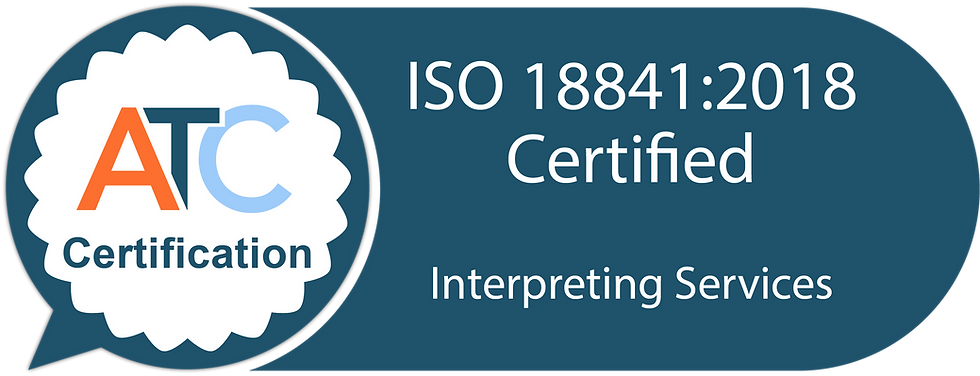Safeguarding Consecutive Interpreters in Mental Health: Essential Guidelines for Professionals
- Lauren Shadi | Director of GMYW

- Mar 11, 2025
- 3 min read
Updated: Mar 15, 2025

At Give Me Your Word, we are committed to providing high-quality interpreting services, especially in sensitive and complex environments like mental health settings. Collaborating with interpreters in these environments requires careful safeguarding to protect all parties involved: service users, professionals, and interpreters. Many professionals may have limited experience working with interpreters and may not fully understand the interpreter’s role. The following best practices are designed to ensure safe and effective collaboration during consecutive interpreting in mental health contexts.
The Role of a Consecutive Interpreter in Mental Health
In mental health settings, consecutive interpreters play a vital role in bridging the communication gap between mental health professionals and service users. They facilitate communication by listening to speech and rendering it in another language. Interpreters do not act as advocates, advisors, or companions, and should never influence the conversation or offer personal opinions.
Given that emotions and distress levels in mental health settings can be heightened, safeguarding measures must be in place to ensure clarity, neutrality, and the well-being of all involved.
Key Interpreter Safeguarding Guidelines
1. Supervision and Professional Boundaries
Never leave interpreters alone with service users. A professional must always be present to ensure professional boundaries and safety are maintained.
Interpreters should not be asked to interact with service users outside of the professional setting. This includes refraining from personal discussions, offering reassurance, or engaging in informal interactions.
Provide a safe and appropriate waiting area. If there is a delay before a session begins, interpreters should wait in a staff room or private area, not in the presence of service users.
Ensure staff presence during waiting periods. If an interpreter needs to wait in the same space as a service user, a staff member must always be present to supervise.
2. Maintaining Professional Boundaries in Waiting Areas
A common concern among interpreters is being asked to engage in informal conversation or activities, such as colouring in with service users, while waiting for a session to begin. This violates professional boundaries and can compromise the interpreter's neutrality. Their sole function is to facilitate communication, not engage in personal interactions.
If there is a waiting period, interpreters should be given a separate space or remain under the supervision of a staff member.
3. Managing Emotional Impact
Mental health discussions can be emotionally challenging for everyone involved, including interpreters. Sensitive topics such as trauma, abuse, self-harm, or psychosis can be distressing, and safeguarding the well-being of interpreters is critical.
Provide a pre-session briefing. While interpreters receive background information when booked, a quick overview before the session helps them prepare for sensitive or potentially distressing topics.
Debrief after the session. If the session is emotionally difficult, interpreters should have an opportunity to express any concerns. A debrief also allows the professional to seek clarification on cultural aspects and assess communication challenges.
4. Ask the Interpreter to Introduce Themselves and Explain Their Role
At the beginning of every session, allow the interpreter to introduce themselves and explain their role. This helps set expectations and ensures clarity for both the interpreter and the service user. The interpreter should state that they will interpret everything said without omission or personal involvement and that all communication will remain confidential. This explanation reassures everyone involved that the communication will be neutral, complete, and private.
Training for Best Practices in Mental Health Interpreting
To ensure that professionals can work effectively with interpreters in mental health settings, GMYW offers a 1-hour Best Practice Training Workshop covering:
The importance of using impartial interpreters in mental health
Sourcing qualified interpreters in an unregulated industry
Managing sensitive and emotionally charged discussions
Practical considerations before, during, and after sessions
Addressing interpreter-related challenges
A Q&A session for specific concerns
Creating a Safe and Professional Mental Health Environment
By adhering to these safeguarding measures, mental health professionals can contribute to a safe, structured, and professional environment for interpreters and service users. Effective management of interpreters enhances communication, leading to better therapeutic outcomes and promoting the overall well-being of service users.
For further guidance or to book a Best Practice Training session, please contact GMYW. We are committed to ensuring high standards in mental health interpreting.






